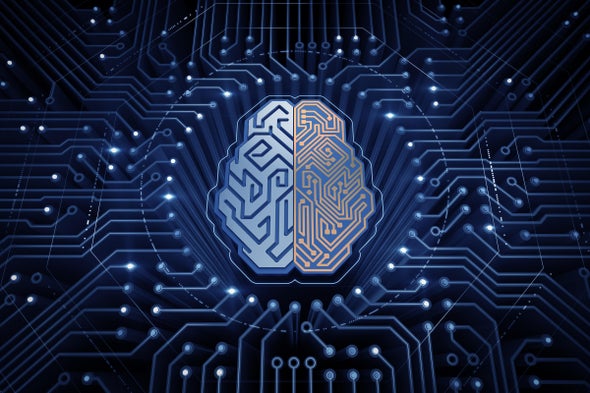Admin | Posted on | Science-Technology
What according to you is the future of Artificial Intelligence?
Stack Developer | Posted on
The future of Artificial Intelligence: 6 ways it will impact everyday life
Technology moves at breakneck speed, and we now have more power in our pockets than we had in our homes in the 1990s. Artificial intelligence (AI) has been a fascinating concept of science fiction for decades, but many researchers think we’re finally getting close to making AI a reality. NPR notes that in the last few years, scientists have made breakthroughs in “machine learning,” using neural networks, which mimic the processes of real neurons.
This is a type of “deep learning” that allows machines to process information for themselves on a very sophisticated level, allowing them to perform complex functions like facial recognition. Big data is speeding up the AI development process, and we may be seeing more integration of AI technology in our everyday lives relatively soon. While much of this technology is still fairly rudimentary at the moment, we can expect sophisticated AI to one day significantly impact our everyday lives. Here are 6 ways AI might affect us in the future.
1. Automated Transportation
We’re already seeing the beginnings of self-driving cars, though the vehicles are currently required to have a driver present at the wheel for safety. Despite these exciting developments, the technology isn’t perfect yet, and it will take a while for public acceptance to bring automated cars into widespread use. Google began testing a self-driving car in 2012, and since then, the U.S. Department of Transportation has released definitions of different levels of automation, with Google’s car classified as the first level down from full automation. Other transportation methods are closer to full automation, such as buses and trains.
2. Cyborg Technology
One of the main limitations of being human is simply our own bodies—and brains. Researcher Shimon Whiteson thinks that in the future, we will be able to augment ourselves with computers and enhance many of our own natural abilities. Though many of these possible cyborg enhancements would be added for convenience, others might serve a more practical purpose. Yoky Matsuka of Nest believes that AI will become useful for people with amputated limbs, as the brain will be able to communicate with a robotic limb to give the patient more control. This kind of cyborg technology would significantly reduce the limitations that amputees deal with on a daily basis.

3. Taking over dangerous jobs
Robots are already taking over some of the most hazardous jobs available, including bomb defusing. These robots aren’t quite robots yet, according to the BBC. They are technically drones, being used as the physical counterpart for defusing bombs, but requiring a human to control them, rather than using AI. Whatever their classification, they have saved thousands of lives by taking over one of the most dangerous jobs in the world. As technology improves, we will likely see more AI integration to help these machines function.
4. Solving climate change
Solving climate change might seem like a tall order from a robot, but as Stuart Russell explains, machines have more access to data than one person ever could—storing a mind-boggling number of statistics. Using big data, AI could one day identify trends and use that information to come up with solutions to the world’s biggest problems.
5. Robot as friends
Who wouldn’t want a friend like C-3PO? At this stage, most robots are still emotionless and it’s hard to picture a robot you could relate to. However, a company in Japan has made the first big steps toward a robot companion—one who can understand and feel emotions. Introduced in 2014, “Pepper” the companion robot went on sale in 2015, with all 1,000 initial units selling out within a minute. The robot was programmed to read human emotions, develop its own emotions, and help its human friends stay happy. Pepper goes on sale in the U.S. in 2016, and more sophisticated friendly robots are sure to follow.
6. Improved elder care
For many seniors, everyday life is a struggle, and many have to hire outside help to manage their care, or rely on family members. AI is at a stage where replacing this need isn’t too far off, says Matthew Taylor, computer scientist at Washington State University. “Home” robots could help seniors with everyday tasks and allow them to stay independent and in their homes for as long as possible, which improves their overall well-being.
Although we don’t know the exact future, it is quite evident that interacting with AI will soon become an everyday activity. These interactions will clearly help our society evolve, particularly in regards to automated transportation, cyborgs, handling dangerous duties, solving climate change, friendships and improving the care of our elders. Beyond these six impacts, there are even more ways that AI technology can influence our future, and this very fact has professionals across multiple industries extremely excited for the ever-burgeoning future of artificial intelligence.
0
0 Comment
Tech Supproter | Posted on
0
0 Comment
Best Artificial Intelligence, Mobile App Development, Web development, Android App Development Company | Posted on
AI may entirely one day take over the human role that they play
0
0 Comment
